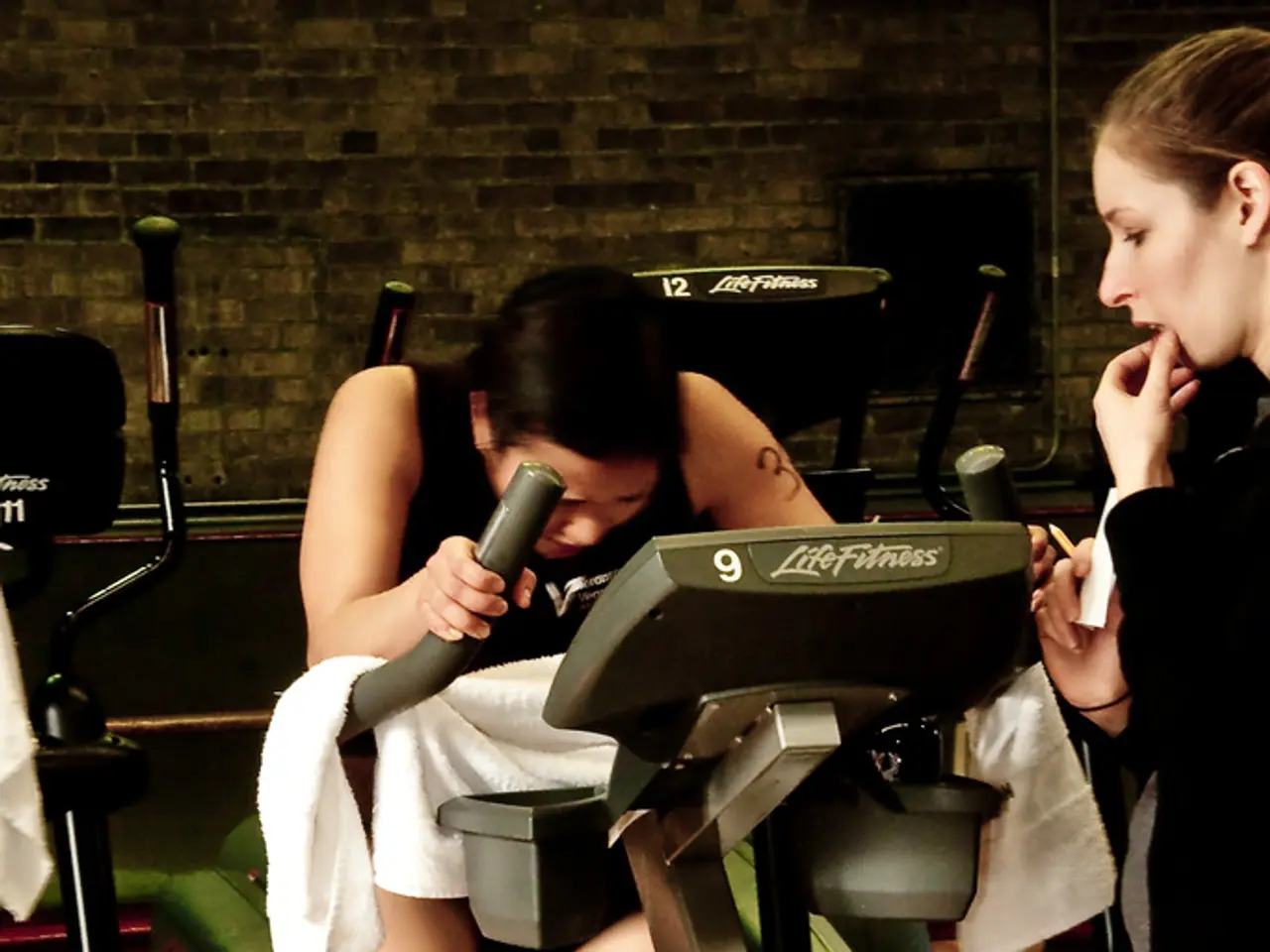navigating the world of professional cycling and menstruation: insights from female cyclists
In the approaching Tour de France Femmes avec Zwift, female cyclists will be stepping up to the challenge, ready to compete at the highest level. As they fine-tune their nutrition and prepare for the long rides ahead, they are also acknowledging and adapting to the unique challenges that come with their menstrual cycles.
The menstrual cycle can significantly impact a female cyclist's performance, recovery, and health. Some riders may experience difficulty with carbohydrate intake and more frequent bathroom needs in early menstruation days, potentially affecting energy management during races. However, after menstruation, certain hormonal phases can enhance recovery and muscle fuel glycogen release, providing a perceived "superpower" for some cyclists.
Individual differences between riders are vast when it comes to the physical and emotional effects of menstruation. For example, Emma Norsgaard may not feel like her usual self racing during her period, while Kim Le Court-Pienaar has openly competed and won stages while menstruating.
Balancing health and peak performance is a delicate task in road cycling, given the sport's emphasis on power-to-weight ratio. Maintaining a regular menstrual cycle and a healthy weight can be challenging, with some riders advocating for health over being extremely lean.
Historically, some teams used hormonal contraception to manage periods during races, but this practice is now mostly reserved for exceptional cases, reflecting a broader shift toward respecting natural hormonal cycles and athlete well-being.
Specialists like Dr. Anna Carceller emphasize the importance of a regular menstrual cycle as a sign of good health, warning that hormonal imbalances increase injury risk, illness, and reduce training and competition capacity over time.
The UK Sports Institute conducted a workshop on training around the menstrual cycle, which changed the understanding of the menstrual cycle for some coaches and athletes. This open discussion is becoming more common, with young cyclists feeling more comfortable discussing the menstrual cycle with coaches due to prominent figures in the sport openly discussing it on social media.
Demi Vollering, the 2023 Tour winner, encourages women to understand and support their bodies during their menstrual cycle. She, along with many other cyclists, is racing while somewhere along their menstrual cycle.
The menstrual cycle can have a significant impact on a cyclist's performance, and accounting for these changes can help reduce injuries and fatigue. Female-specific nutrition strategies can help athletes understand and harness the changes in their bodies during the menstrual cycle. For instance, during the luteal phase, when energy drops, moods lower, and performance can suffer, eating more carbs can help build fat as exercise becomes tougher due to increased levels of oestrogen and progesterone.
However, it's important to note that not all cyclists experience the same effects. Some may experience euphoria, increased bone strength, or cramps depending on their phase of the menstrual cycle.
The UK Sports Institute encourages female athletes to monitor their menstrual cycle to adapt their training plans around the chemical and physical changes in their bodies. Women cyclists may also experience increased susceptibility to lower back pain during certain parts of their menstrual cycle.
Period products in the UK are subject to VAT, reflecting a cultural silencing about the menstrual cycle and its natural functioning. As discussions about periods and performance within bike racing and beyond become more common, it's a necessary step towards better understanding the benefits it can bring to race times and strength training.
In conclusion, while menstruation can influence energy levels, recovery, and comfort, female cyclists in the Tour de France Femmes are adapting individually, with growing acceptance and openness about menstrual health and its complex role in athletic performance and well-being.
Science plays a crucial role in understanding the impact of the menstrual cycle on a female cyclist's performance and health. This knowledge is essential for developing female-specific nutrition strategies to harness changes in the body during the menstrual cycle, such as adjusting carbohydrate intake during the luteal phase.
Health and wellness, specifically women's health, are becoming increasingly important topics in the world of competitive cycling. As more athletes openly discuss their experiences, it encourages younger cyclists to feel comfortable talking about their menstrual cycles with coaches, fostering a more supportive and informed environment.




